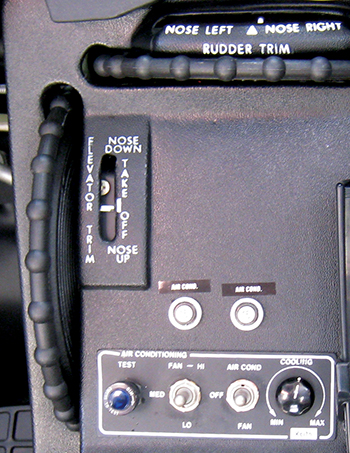Subscriber question:
"My instructors always told me to 'trim off the control pressures,' but no matter how much I try, I feel like I never get the airplane perfectly in trim. What am I doing wrong?" — Joe P.
Bruce:

“Early in our flight training, most us learned a simple mantra for using trim: Pitch … Power … Configuration … Trim.
If you change pitch, power, or configuration, you affect airspeed (actually you affect AoA) and you need to adjust the elevator trim — eventually.
Unfortunately, we’re often too quick to reach for the trim. If you trim before the airplane has settled at a new constant airspeed, you just need to trim again later. You end up making frequent, small adjustments and the airplane is never properly trimmed.
Here’s a simple fix: When you change pitch, power, or configuration, wait at least five seconds before you touch the elevator trim. If it helps, verbally or silently count to five (or even ten), and only then reach for the trim.
The key to using trim correctly is remembering that elevator trim is a secondary flight control, adjusted to relieve control pressures after the airplane has stabilized. Unless the change is temporary, such as when you make a small pitch change to recapture cruise altitude after updating the altimeter setting. In that case, you quickly return to the previously trimmed steady state.
The five-second rule might not always apply. For example, suppose you have trimmed the airplane at or near idle power with full flaps on final approach. The trim is set far into the nose-up range. If you add full power for a go-around, you must push forward on the yoke or stick to keep the nose from rising abruptly.
In this situation, it’s helpful give the trim a quick nose-down swipe immediately after you add power to help manage the force required to hold the nose at the correct go-around attitude. You can fine-tune the trim after the airplane is climbing safely away from the runway and you have established the pitch attitude and configuration for a stable climb speed.”
Do you adjust trim before engaging the autopilot?
